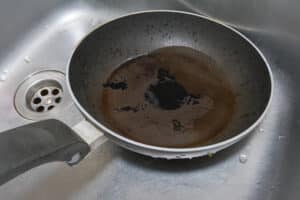Septic tanks should be pumped every 3-5 years, depending on the size of the tank and the number of occupants in the household. Pumping removes accumulated solids, which can clog the system and cause backups.
Periodic inspections by a licensed professional can help identify any potential issues before they become major problems that can be expensive to fix. These inspections typically include checking the condition of the tank, the absorption field, and the overall functioning of the system. Inspections are very important in maintaining your septic system since they can identify issues early.

Be mindful of what goes down the drains and toilets. Avoid flushing non-biodegradable items, harsh chemicals, grease, or excessive amounts of household cleaners. These can harm the septic system and disrupt the natural bacterial balance.
Another important consideration for maintaining your septic system is of course water conservation. Oklahoma is prone to drought, so using water efficiently is crucial. Conserving water can reduce the strain on the septic system and help it operate more efficiently. Repair any leaks, use water-saving appliances, and spread out water usage throughout the day instead of overwhelming the system with large amounts of wastewater at once.
While some people may use additives to enhance septic system performance, they are generally unnecessary and can even harm the system. Maintain a healthy bacterial balance naturally by avoiding unnecessary additives. Likewise, use septic-friendly products. Harsh chemicals, antibacterial soaps, and excessive use of household cleaners can harm the beneficial bacteria in the septic tank. Opt for biodegradable products to maintain the balance of bacteria.
Avoid placing heavy objects or driving vehicles on the drain field to prevent compacting the soil and damaging the pipes. Planting grass or shallow-rooted plants on the drain field can help absorb excess water and prevent soil erosion

Be cautious when landscaping around the septic system. Keep trees and shrubs planted away from the drain field to prevent root intrusion, which can damage pipes and cause clogs.
Ensure that all household members are aware of the septic system’s do’s and don’ts. Teach them about water conservation, proper waste disposal, and the impacts of misuse on the system.
Ensure that roof gutters, sump pumps, and other sources of excessive water runoff are directed away from the septic system. Excessive water can overload the system and cause it to fail.
 Maintain a record of septic system inspections, pumping, and any other repairs or modifications made to the system. This helps track its maintenance history and assist in identifying patterns or issues over time.
Maintain a record of septic system inspections, pumping, and any other repairs or modifications made to the system. This helps track its maintenance history and assist in identifying patterns or issues over time.
By following these maintenance and service recommendations, Oklahoma homeowners can help keep their septic systems in optimal shape. Be sure to consult with a professional septic system service provider in Oklahoma for specific recommendations based on the system’s size, age, and location.